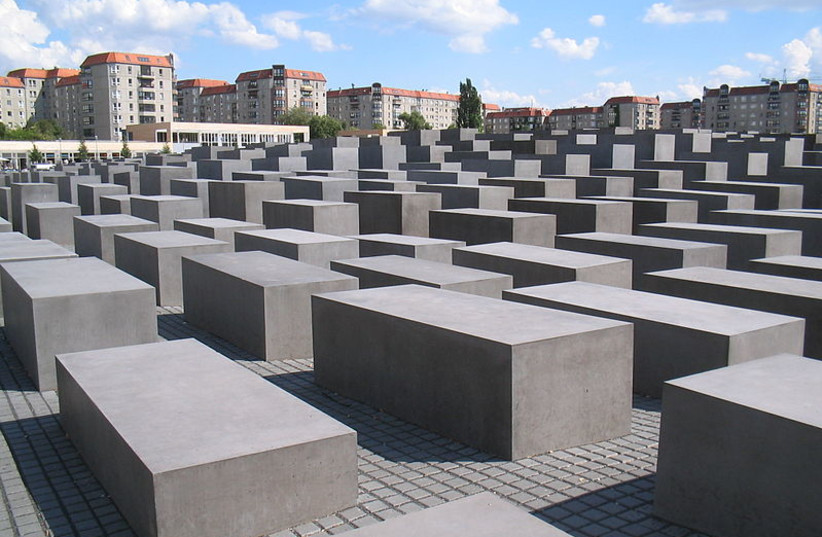It’s that time of year again when Nobel Prize laureates are being announced. While you may argue the questionable merits of some of its recipients, it is undeniable that Nobel Prizes represent pinnacles of human achievement and contribution to the welfare of our species. The vast majority on this role of honor have striven to further humankind’s development and quality of life and without them, the world would be much poorer.
Of the 975 recipients to date, approximately 210 of them are Jews or people of half- or three-quarters Jewish ancestry. That is more than one in every five, which is beyond astonishing, given that only one in every 500 people in the world is Jewish.
Among these esteemed Jews, there are 11 Holocaust survivors, who majestically found the fortitude to rise from the ashes and advance the welfare of mankind, which had failed them so fundamentally. These include the 1966 Literature laureate Nelly Sachs, and 1986 Peace Prize winner Elie Wiesel, who survived the horrors of Auschwitz.
Martin Karplus who was awarded the 2013 Nobel Prize for Chemistry alongside Israeli-Americans Michael Levitt and Arieh Warshel, laid the foundation for the computer programs used to understand and predict chemical processes which have become crucial for most advances made in chemistry today. Another 2013 winner was Francois Englert, who shared the Physics prize with Peter Higgs for their seminal theory of how particles acquire mass. Their theory was confirmed by the 2012 discovery of the Higgs particle, more commonly known as the “God particle.” Englert was born in Brussels in 1932. He survived by concealing his identity and being sheltered in a series of orphanages.
Can you imagine if these great people had been among the vast majority of European Jews who did not survive the Second World War? This begs the thought as to how much better the world would have been if the Holocaust had not happened at all.

What could we have had if the Holocaust never happened?
Among its victims may have been someone who would have discovered the cure for brain cancer, developed an airplane that would fly by wind power alone or invented a water-free system for growing crops in drought-stricken Africa. It is feasible that there was a Jewish Mandela among them, a novelist combining the skills of Hemingway and Murakami and an economist capable of developing a system incorporating only the positive aspects of socialism and capitalism, thus creating prosperity and equality for all. Thousands of great, great minds lost to humanity would undoubtedly have advanced the quality of our lives beyond imagination. How much have we all, every species on the planet, sacrificed because of this and other horrific catastrophes that the human race has inflicted upon itself.
FORGETTING BASIC human traits such as humanity, morality and ethics, the Nazi barbarians and their accomplices in their blind hatred could not contemplate the self-serving thought that they may be killing the potential curer of the diseases of their children and grandchildren.
It is astounding that the nation which has suffered the most at the hands of their fellow human beings are the people which pro rata has contributed the most to its advancement.
Of course, excellence in various fields of endeavor are not limited to specific nations, cultures, religions or ethnicities; but whether one likes it or not, for a multitude of reasons, different groupings do “punch beyond the weight.”
For example, we marvel at the artwork of the great Western European masters, while Western architects are inspired by the intricacy of Far Eastern design. East African and Caribbean track athletes thrill us with their prolific prowess. Many flock to India to learn mysticism from the masters and rely on the Nepalese to guide them up the mountains otherwise inaccessible to us. Each culture brings its unique thread to the tapestry of humankind.
Quiet has not come just yet
Yet humankind continues to kill. Perhaps we have lost a child victim in the Ukraine who possessed the greatest musical mind since Mozart, or a future marathon world record holder, gunned down in Khartoum. Could one of the thousands of children killed in the Iran-Iraq War have been the modern Omar Khayyám? For all one knows, a youthful modern-day Confucius may have happened upon Tiananmen Square in June 1989.
It was Confucius who 2,500 years ago said, “What you do not want done to yourself, do not do to others.” Almost exactly the same sentiment was echoed five hundred years later by the great Jewish sage Hillel who advised, “What is hateful to you, do not do to your neighbor.” Many religions and philosophies have very similar mantras, which indicates a cross-cultural commonality of morality. This may not be as profound, proactive and far-reaching as say, “Love your fellow human as yourself” (my free translation of Leviticus [Vayikra] 19:18), but if all people applied it, that would be a wonderful start.
“What is hateful to you, do not do to your neighbor.”
Jewish sage Hillel
Can we contemplate a utopian day when would-be despots and desperadoes finally understand the encompassing benefit of benevolence? Our hope lies in the example of Alfred Nobel himself, the inventor of dynamite who established 90 armaments factories in his lifetime. Finally understanding the destructive effect of his life’s work, he turned his thoughts to the welfare of humanity and used his fortune to institute those noble eponymous prizes.
Perhaps someday, an exceptional individual, born in a conflict-free zone, will cultivate and multiply the “humane gene” that exists within us all. That seminal breakthrough would lead the way to peace on Earth and well-being for all humanity. And its author would surely be worthy of a Nobel Prize.
The writer is the author of The Prayer for the Preservation of the Environment.
